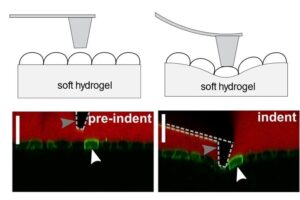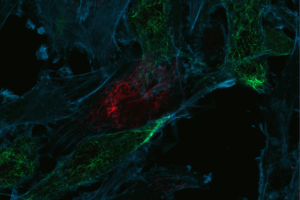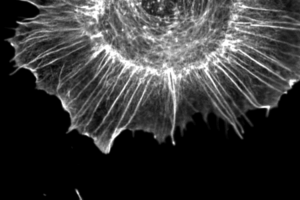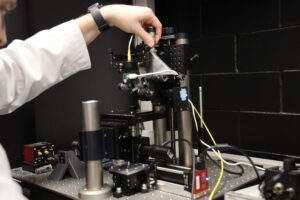CTELab
The overarching goal of the Cell and Tissue Engineering Lab is to investigate how cells and tissues become fragile in disease, and to reverse engineer the mechanical properties of cells and tissues for use in regenerative medicine.
Members of the CTELab 2025
About the CTELab
We are an interdisciplinary team of engineers, biologists, physicists and biochemists with a passion for biomedical research. Our research bridges the gap between length scales, from the molecular, to cell and tissue scales, and disciplines, by combining expertise in materials science and mechanics, with tools and techniques from the life sciences. The overarching goal of the CTELab is to investigate how cells and tissues become fragile in disease, and to reverse engineer the mechanical properties of cells and tissues for use in regenerative medicine. To support this research, we build our own tools to characterize cell mechanical properties (such as Atomic Force Microscopy) and to evaluate the response of cells to mechanical stimulation (Optical Microscopy). Within this general theme, research in the laboratory is focused on four key areas:
Research Projects

Diseases of Tissue Fragility
Investigating how changes to protein function lead to diseases of cell and tissue fragility, such as the weakening of skin tissue.

Mechanisms of Traumatic Brain Injury
Determining the mechanisms of neural cell injury under high strain rate loading conditions associated with traumatic brain injury.

Cell, Cytoskeletal and Polymer Mechanics
Characterizing how cellular level forces drive cell shape change, motility, and the production of platelets.

Tool Development
Designing and build tools for cell and tissue mechanical testing, optical microscopy, and general lab work leveraging our expertise in engineering to study biology.
News
1 min read
Paper Published!
1 min read
Review paper published!
1 min read
Congratulations Vineeth on being awarded a Vishnu Mehrotra Scholarship
1 min read